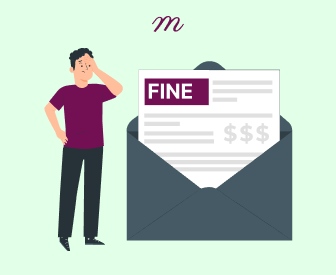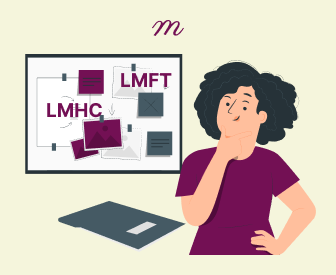Have your progress notes written for you automatically
If you’re a business owner or practitioner delivering outpatient psychotherapy or counseling services, you’re probably well-versed in the arena of health insurance. At the very least, you understand that whether the setting is a hospital system, community clinic, or private practice – we depend on insurance reimbursement to survive financially.
If you choose not to work with insurance and operate as a cash-only or private-pay business, that’s certainly an alternative and completely reasonable decision. We should stand in solidarity with practitioners who prefer this model. About 50% of all outpatient practitioners in the U.S. operate their therapy businesses this way.
As a clinician who’s done it both ways (private pay and insurance pay), we really cannot fault any business or practitioner for how they decide to financially support their business. Clinicians are highly educated and highly proficient in their clinical skills. Frankly, outpatient mental health remains a very difficult profession to make a living that consistently pays the bills. For some healers, working under the various rules and requirements of insurance companies, being denied payments, having payments delayed, or being subject to excessive documentation or surprise audits is just not worth the hassle, and therefore opt for the private pay model.
We salute our colleagues who make this choice largely out of self-care and honoring their professional value and time.
For those who choose to work with insurers for reimbursement, here are some tips to avoid denials or delayed payments:
Understand credentialing
First things first, you or your business owners will need to sign a contract with an insurer in order to be considered “in-network”. Some providers mistakenly think that if the practice itself [e.g., “Counseling Services, LLC”] has an NPI or active contract with an insurer, then that means new clinicians joining the practice will just get paid automatically. Actually, no. Each clinician’s name and individual provider NPI needs to be spelled out in the contract in order to be covered and reimbursed. And it doesn’t stop there.
Just because you are listed on an active contract with Aetna, for example, doesn’t necessarily mean you will be paid for every single client under Aetna who walks through the door. Frustrating, I know. This is because every insurer has a slew of different benefit plan types and lines of business. Are you in-network with HMO and PPO? Commercial plans only? Medicare Advantage? Make sure you and your team understand the specific plan types you are considered “in-network” to treat.
Verify the client’s insurance ahead of the first session taking place. If you’re a solo practitioner, this can be hard to achieve. Still, it’s worthwhile to brainstorm no matter the practice size. Many therapists routinely offer a free “initial consultation” via phone or video of about 15–30 minutes to determine if the prospective client is a good match for the specific services they provide.
If the therapist and client mutually determine they want to move forward, it’s wise at that time to grab verbal consent to contact the insurer and specific plan information. This may include things like plan name, Member ID#, DOB, zip code, policyholder name, and the Provider Services phone number listed on the back of the insurance ID card. Make a template if you need to, but grabbing these pieces before the end of the call can save a lot of time on the back end.
Either you or someone at the practice can then call the number and verify the client’s benefits, whether the plan is in-network with you (therapist delivering the service), and request authorization if needed. Alternatively, many insurers have tools on their respective websites to verify coverage or use a vendor like Availity, where you can enter client and insurer information to determine whether any next steps are needed to ensure payment.
Understand HMO vs. PPO
I’ll be honest with you, I worked in health insurance for 4 years before I knew what these terms meant. Generally speaking, HMO plan types require their members (your client) to access in-network providers only. Be forewarned, if you aren’t in-network with an HMO plan, you will likely need authorization approval before they will pay your claims. You and your client both have the right to request an “exception” for them to see an out-of-network provider and obtain pre-authorization for your services. All things considered, this process usually goes more smoothly when initiated by members (your client) rather than the OON provider (you).
A PPO plan type means the member (your client) usually has out-of -network benefits. Just because there are OON benefits, however, doesn’t mean the insurer will pay OON claims with no questions asked. This really depends on the individual insurer. Sometimes insurers will try to re-direct members to utilizing in-network services instead, as this saves them money and they prefer to keep services at the in-network level under providers who they have contracts with.
This can usually be resolved by the member making contact with their plan and conveying why they wish to use their OON benefits. This could be as simple as “I already established a relationship with my therapist and don’t want to change to someone else” or could involve other reasons like clinical specialty or proximity to their home.
Empowering Clients to Advocate
Speaking of clients initiating the process, there is always a Member Services phone number on the back of an insurance card. Help your clients understand that they have the right to request assistance in locating an in-network provider.
If the client wishes to continue with OON (out-of-network) services with you, they should communicate with their insurer to verify this is within the scope of their benefits and avoid risking claim denials. Yes- even if they are on a PPO plan. Claim denials affect your client as much as they affect your practice. Clients will receive a copy in the mail of every claim denial that is issued. This is upsetting to all involved and these documents can be hard to understand.
If clients become overwhelmed, angry or confused, it may damage the helping relationship or their perception of therapy as worthwhile to pursue. If necessary, take the time to call together, and navigate the insurer’s website or phone app to get to the bottom of what is needed for payment of OON services. Again, clarifying this by the first or second session is a good rule of thumb.
Spot red flags
I’ve seen therapists (out of the kindness in their hearts) treat clients for months without receiving payment. Eventually, they may get approved for payment but struggle to get reimbursed for all their sessions retroactively. Please don’t wait for denials before you sense something is not right. No payer should be taking longer than 14-30 days to adjudicate (make a decision on) claims. If it’s been that long, reach out to the insurer and get some next steps in motion. If your policy is that clients are responsible – let them know. Keeping track and sharing the claim ID numbers can be helpful.
LMFT & LPC billing limitations
Most learn this the hard way, but the unfortunate reality is that (at the time of this writing) Congress has still not passed legislation allowing Marriage & Family Therapists and Licensed Professional Counselors (also known as Licensed Mental Health Counselors or Licensed Clinical Professional Counselors depending on the issuing State) to bill Medicare. This means, of course, the rule also applies to every single Medicare Advantage plan on the market. MA plans follow all Medicare rules. So far, I haven’t heard or seen any MA plans making exceptions for payments to these professionals even though they are deserving of recognition and reimbursement.
Get insurer-level contacts
As mentioned, many insurers have Provider Services phone lines or web-based portals where we request authorizations or submit clinical information. If at all possible, and especially if you work with somebody who truly helps you, get their information. Can they give you a name, e-mail, call-back phone number, or extension where you can get to them quickly and directly in the future? Believe it or not, there are some really kind folks at the insurance level that can help make the process easier. When you catch one, get their info and ask to keep that touchpoint open – particularly if you’re working with several clients under the same insurance plan.
Okay, phew! Confused yet? We’ll stop here for now, even though this list is far from complete. Stay tuned for more content and tips on streamlining the insurance process for clients and providers. Did you pick up anything new? Whether you’re new to the field or a seasoned pro – I hope this information was helpful to you and your work.
P.S. When it comes to any insurance authorization process, quality documentation is key. Check out how Mentalyc supports healers to formulate high-quality, structured notes that demonstrate medical necessity in less than 2 minutes. Their HIPAA-compliant AI platform does the legwork of note-taking so you don’t have to. Insurance begone!
Disclaimer
All examples of mental health documentation are fictional and for informational purposes only.










